Yash ShahI am a Master's student in Computer Science, part of the School of Engineering at Stanford University. I matriculated in 2023 and am specializing in Artificial Intelligence. I currently work in Dr. Daniel L. K. Yamins' NeuroAI lab on topographic vision models, as well as with Dr. Ehsan Adeli on confounder-free systems. Previously, I received my Bachelor's degree (Summa Cum Laude) from University of California, San Diego between 2019 and 2023, where I majored in Computer Science and minored in Humanities. There, I worked in Dr. Nadir Weibel's and Dr. Garrison Cottrell's labs and was a course assistant for CSE 151B under Dr. Garrison Cottrell (Fall 2022) and Dr. Rose Yu (Spring 2023). Email / Google Scholar / GitHub / LinkedIn / Paintings / Quotes |

|
ResearchI'm broadly interested in computational neuroscience, developing models of the mammalian cortex that exhibit biologically-plausible emergent behavior. |
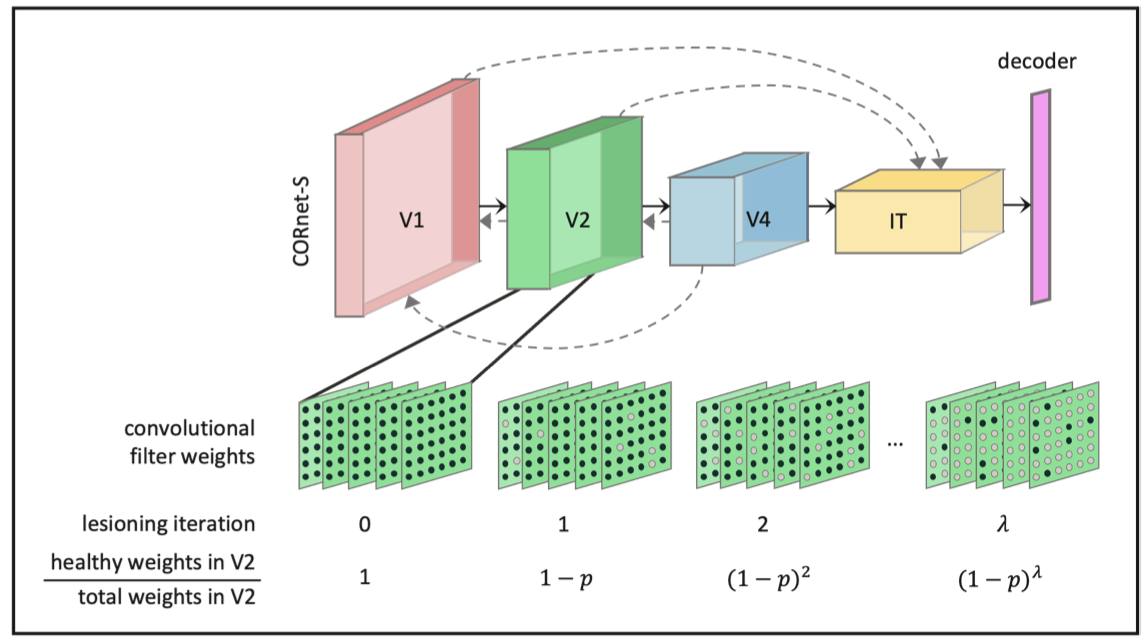
|
Modeling Localized Synaptic Degeneration and Neural Plasticity in Visual CortexYash Shah, Kevin Tran, Daniel L. K. Yamins The 7th Annual Conference on Cognitive Computational Neuroscience, 2024 paper / In this work, we simulate localized synaptic degeneration and neural plasticity using CORnet-S - a deep artificial, and recurrent, model of the brain. |
|
|
Enhancing Accuracy, Time Spent, and Ubiquity in Critical Healthcare Delineation via Cross-Device ContouringMatin Yarmand, Chen Chen, Michael V Sherer, Yash N Shah, Peter Liu, Borui Wang, Larry Hernandez, James D Murphy, Nadir Weibel Proceedings of the 2024 ACM Designing Interactive Systems Conference, 2024 paper / Here we explore contouring, a critical workflow aimed at identifying and segmenting tumors, to identify key behaviors, and later design a novel cross-device prototype that enables contouring on everyday touch devices. |
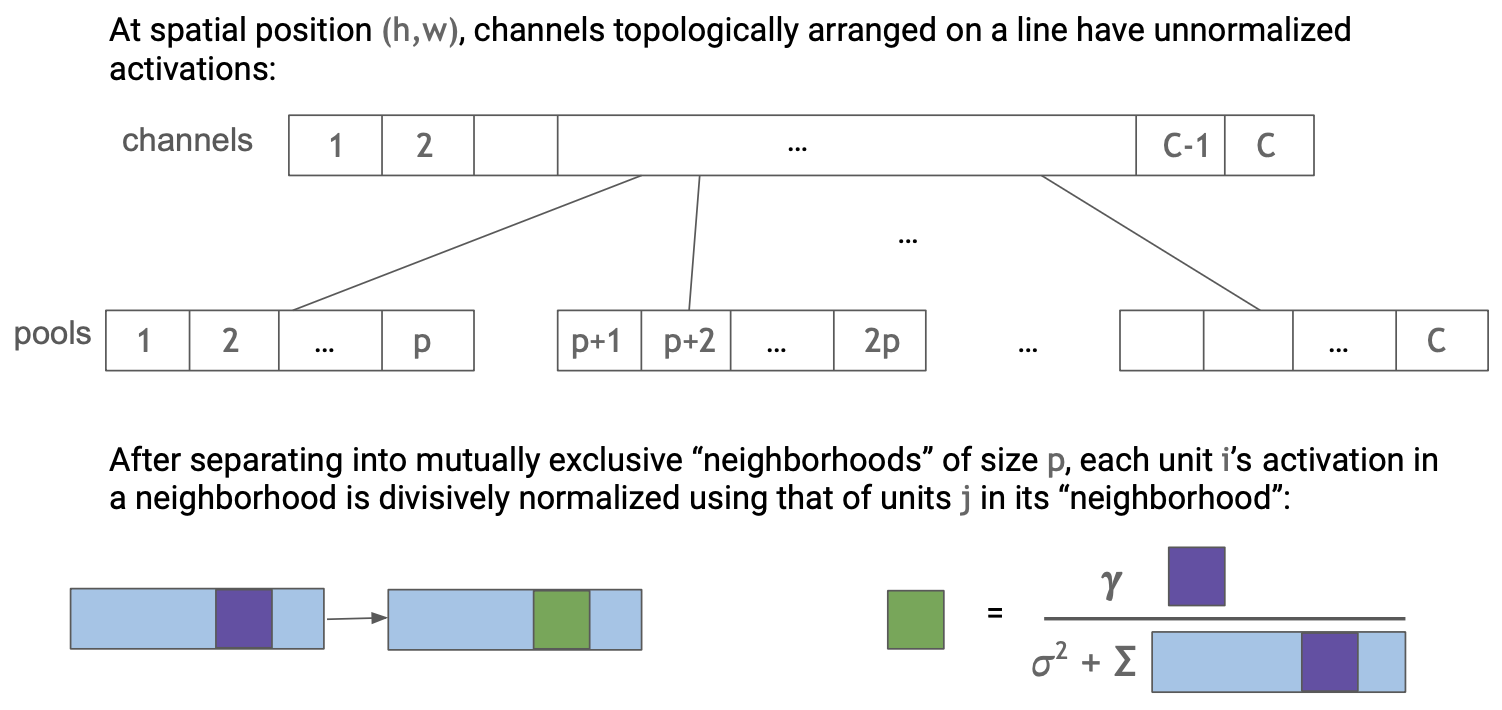
|
Convolutional Neural Networks With Divisive Normalization Across Similar FeaturesYash Shah, Xuzhe Zhi, Keyu Long, Garrison Cottrell Preprint, 2023 In this paper, we explore using divisive normalization across neuronal sub-populations computing similar features to enforce local competition. |
Industry ExperienceA collection of my internship and full-time projects. |

|
Software EngineerPayPal | Team Network Tokenization 2023-07 to 2023-09 Queried ~8M cards for various merchants using PostgreSQL and submitted for bulk network token enrollment. Analyzed 3-D secure transactions for 118 merchants and (1) enabled them to be processed through network tokenization first in production, (2) modified the way 3-D secure transactions are processed for certain processors and card types in the codebase so that future transactions can be directly processed through NT First. |

|
Software Engineer InternPayPal | Team Network Tokenization 2022-06 to 2022-09 poster / Enabled network tokenization first for payment transaction processing for PayPal’s merchant partners to improve security and optimize authorization rates by around 40% for some merchants. Utilized data monitoring tools for monitoring code changes. Added a Foreign Tax ID Prompt to the Token Requestor ID (TRID) Onboarding UI to enable foreign merchants to apply for network tokenization. |

|
Technology Development InternOptum | Team OptumRx 2021-06 to 2021-08 Developed a client portal using React and TypeScript and made Axios calls to the server using React Redux to onboard clients and allow them to place requests for Optum’s API services. Performed interface and architecture design research before building the portal for seamless user experience. Influenced company executives by presenting the business benefits of my project at Shark Tank presentations. |
Other Technical ProjectsThese include coursework and side projects. |

|
From Infant to Toddler to Preschooler: Analyzing Language Acquisition in Language ModelsYash Shah Stanford University CS 224N 2024-06 paper / poster / Here, we model the first six years of language acquisition by training an artificial language model on child-directed transcripts of spoken speech presented in an age-ordered fashion. |
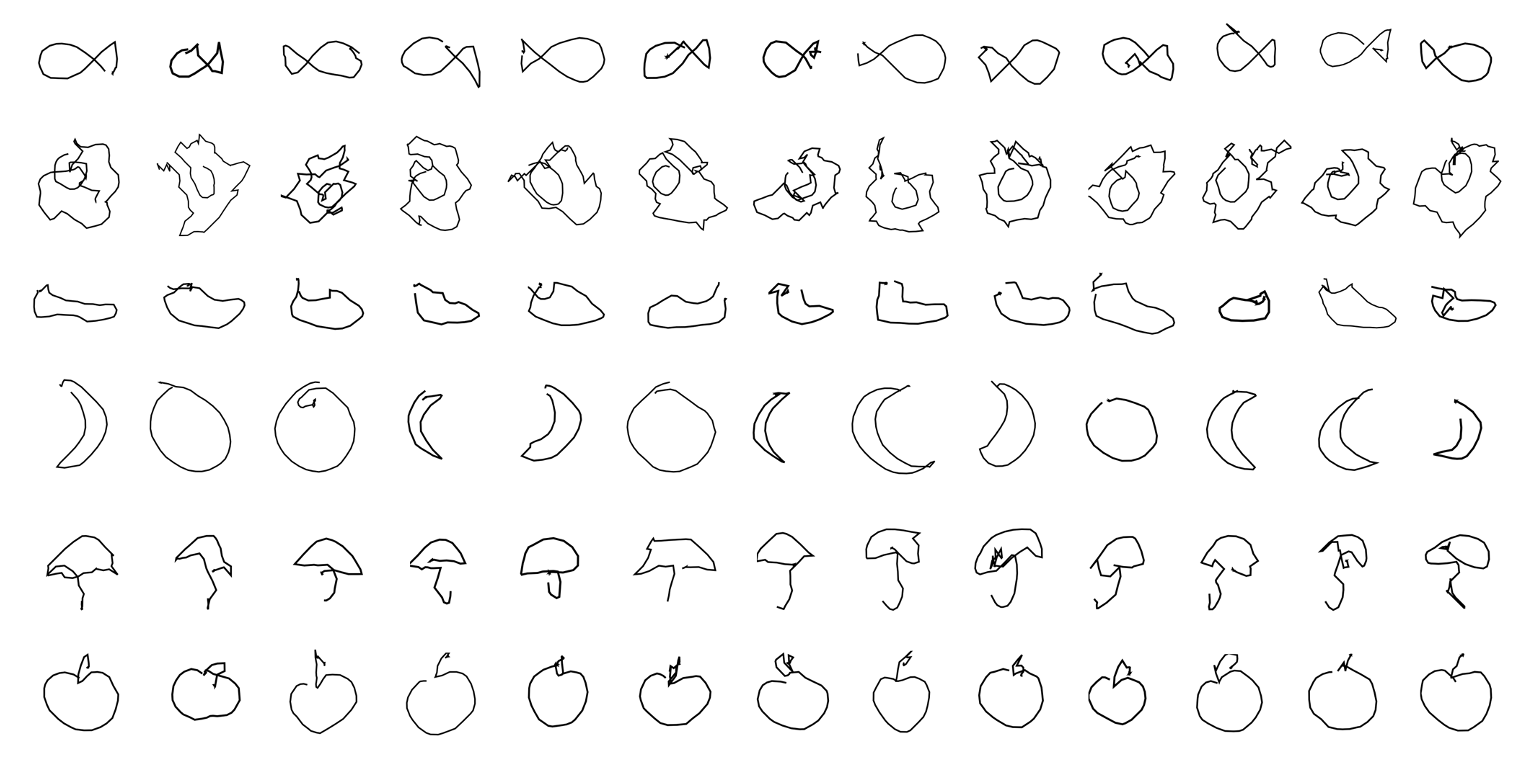
|
You Text, We Sketch: Text-guided Diffusion For Vectorized Sketch GenerationYash Shah*, Samy Cherfaoui* (*equal contribution) Stanford University CS 236 2023-12 paper / poster / In this paper, we explore text-conditioned diffusion models for vectorized sketch generation by conditioning on text during training by feeding text tokens into a Transformer used as a text encoder, and introduce classifier-free guidance to improve sample quality. |
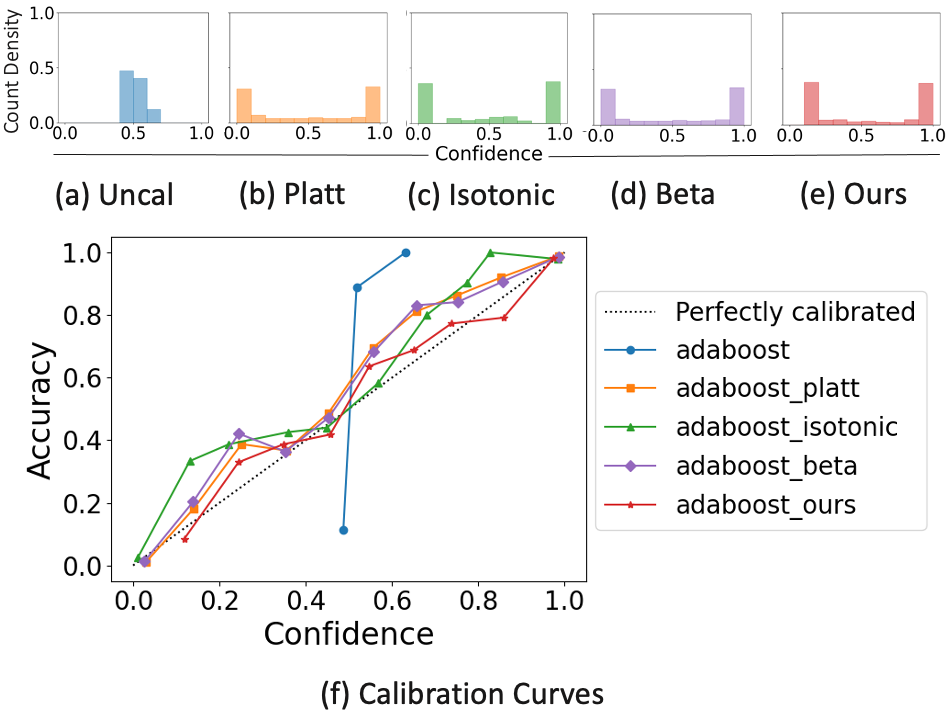
|
Can a Set of Calibrated Weak Learners Create a Single Calibrated Strong Learner?Yash Shah*, Minseok Bae*, Jason Park* (*equal contribution) Stanford University CS 229 2023-12 paper / poster / In this paper, we propose a unique way of implicitly calibrating AdaBoost (a traditional Machine Learning ensemble classifier) during training (as opposed to other post-hoc state-of-the-art techniques) through doubly-calibrating individual weak learners in the ensemble. |
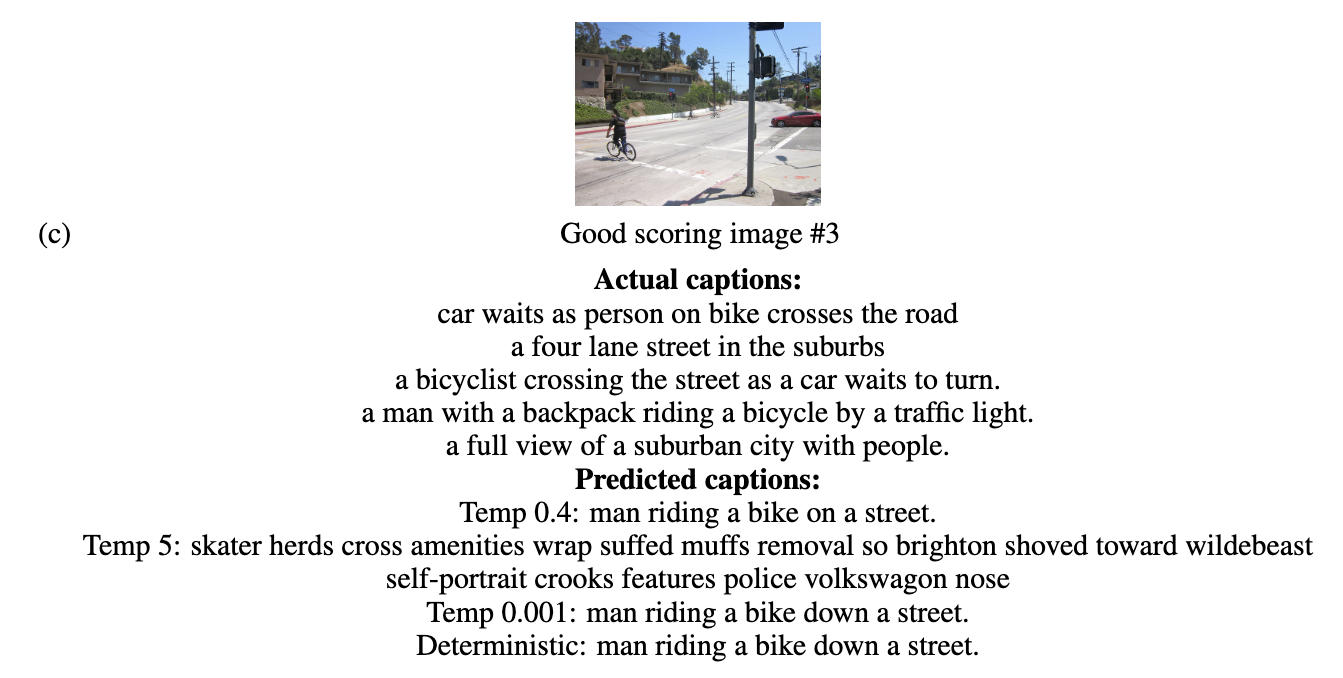
|
Image Captioning with Recurrent Neural NetworksHenry Lister*, Ryan Nishimoto*, Yash Shah* (*equal contribution) UC San Diego CSE 151B 2022-03 paper / In this work we present and analyze the working of a deep RNN in action by captioning images taken from the Microsoft COCO 2014 dataset. We explore various learning rate schedulers, ways of embedding and encoding, LSTMs, temperatures, etc. |
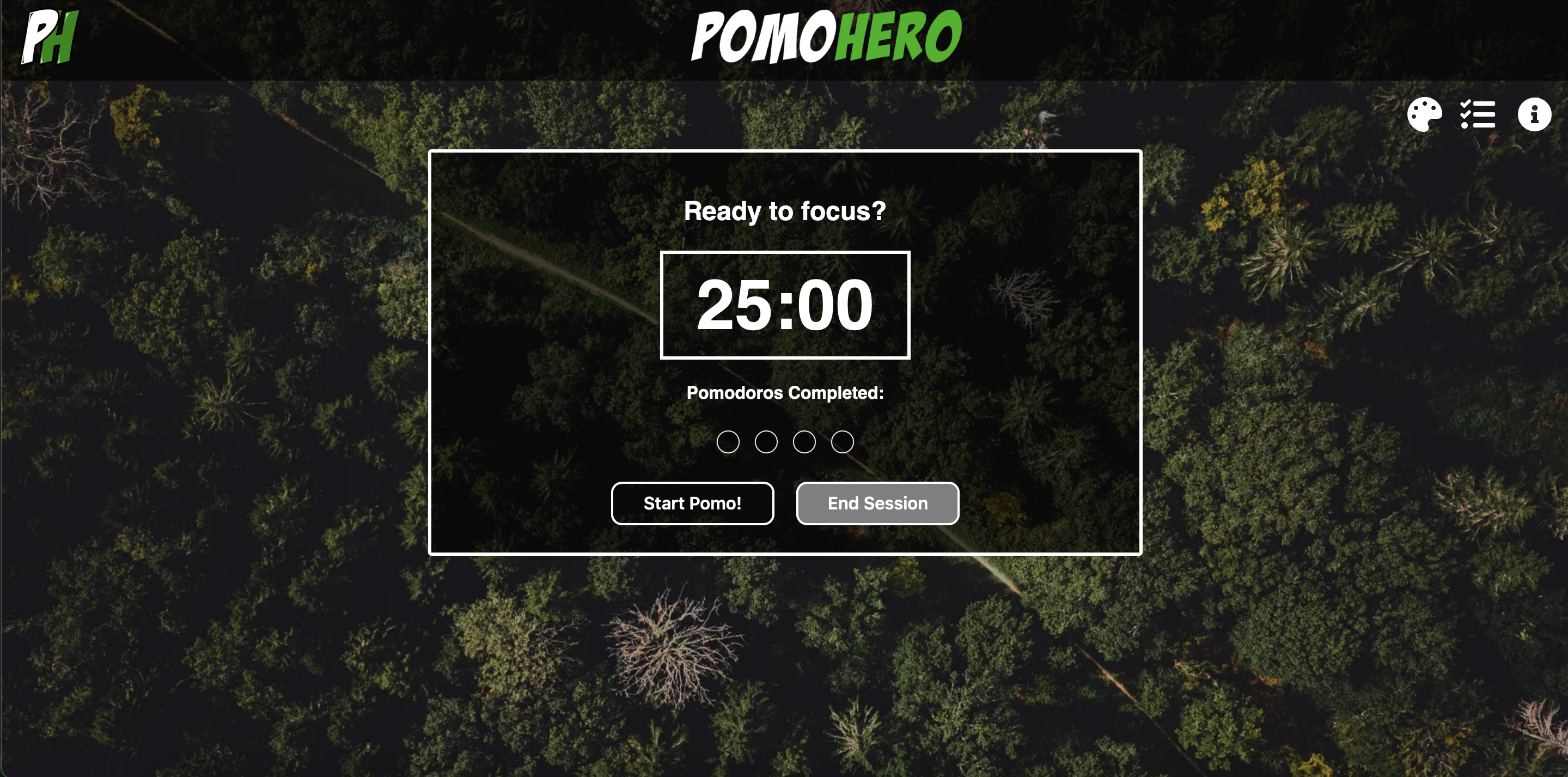
|
PomoHeroMuhammad Z Khan*, Xavier Tan*, James Zhao*, Ivan Robles*, Yash Shah*, Haaris Waleh*, Mrinmoy Dutta* (*equal contribution) UC San Diego CSE 110 2021-03 website / A Pomodoro timer, based on the Pomodoro technique to help users better organize their schedules and get work done through time management. |
Non-Technical ProjectsFrom my Humanities minor. |
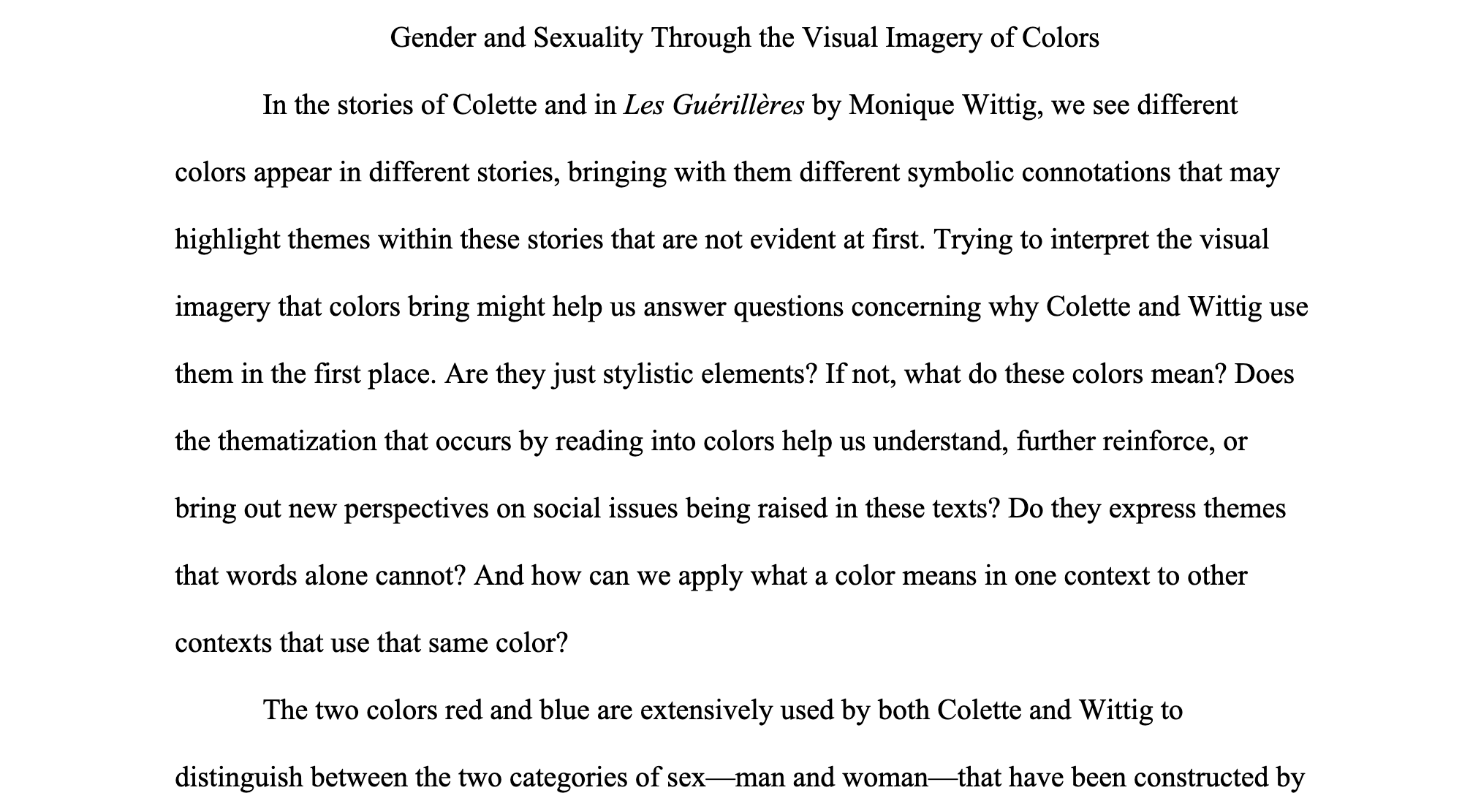
|
Gender and Sexuality Through the Visual Imagery of ColorsUC San Diego LTEU 141 2023-03 paper / In the stories of Colette and in Les Guérillères by Monique Wittig, we see different colors appear in different stories, bringing with them different symbolic connotations that may highlight themes within these stories that are not evident at first. Trying to interpret the visual imagery that colors bring might help us answer questions concerning why Colette and Wittig use them in the first place. |
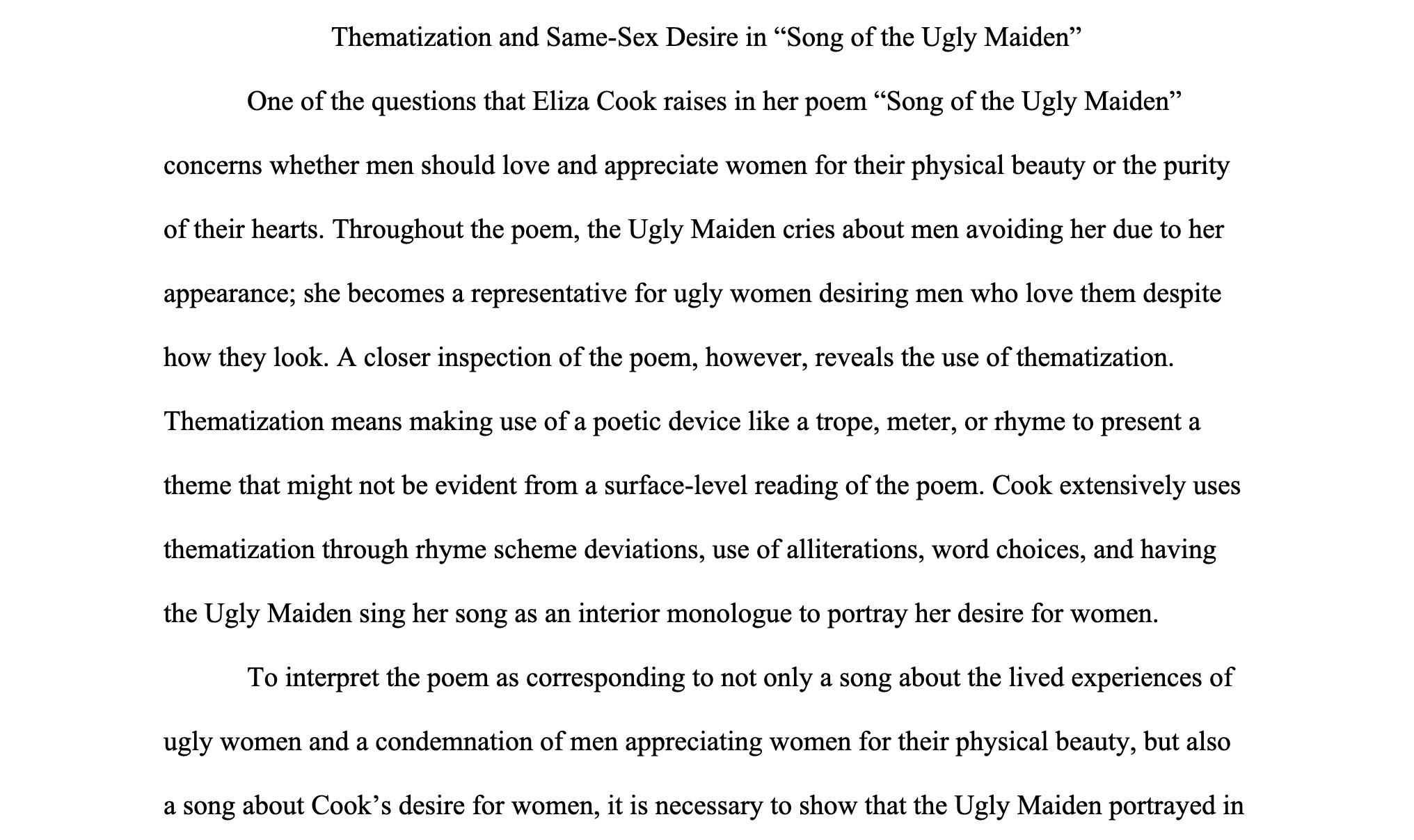
|
Thematization and Same-Sex Desire in “Song of the Ugly Maiden”UC San Diego LTEN 127 2022-11 paper / An interpretation of Eliza Cook’s poem “Song of the Ugly Maiden” is her yearning for a love for women. In this paper, I argue for this through analyzing thematization that occurs in the poem through rhyme scheme deviations, use of alliterations, word choices, and Cook having the Ugly Maiden sing her song as an interior monologue. |
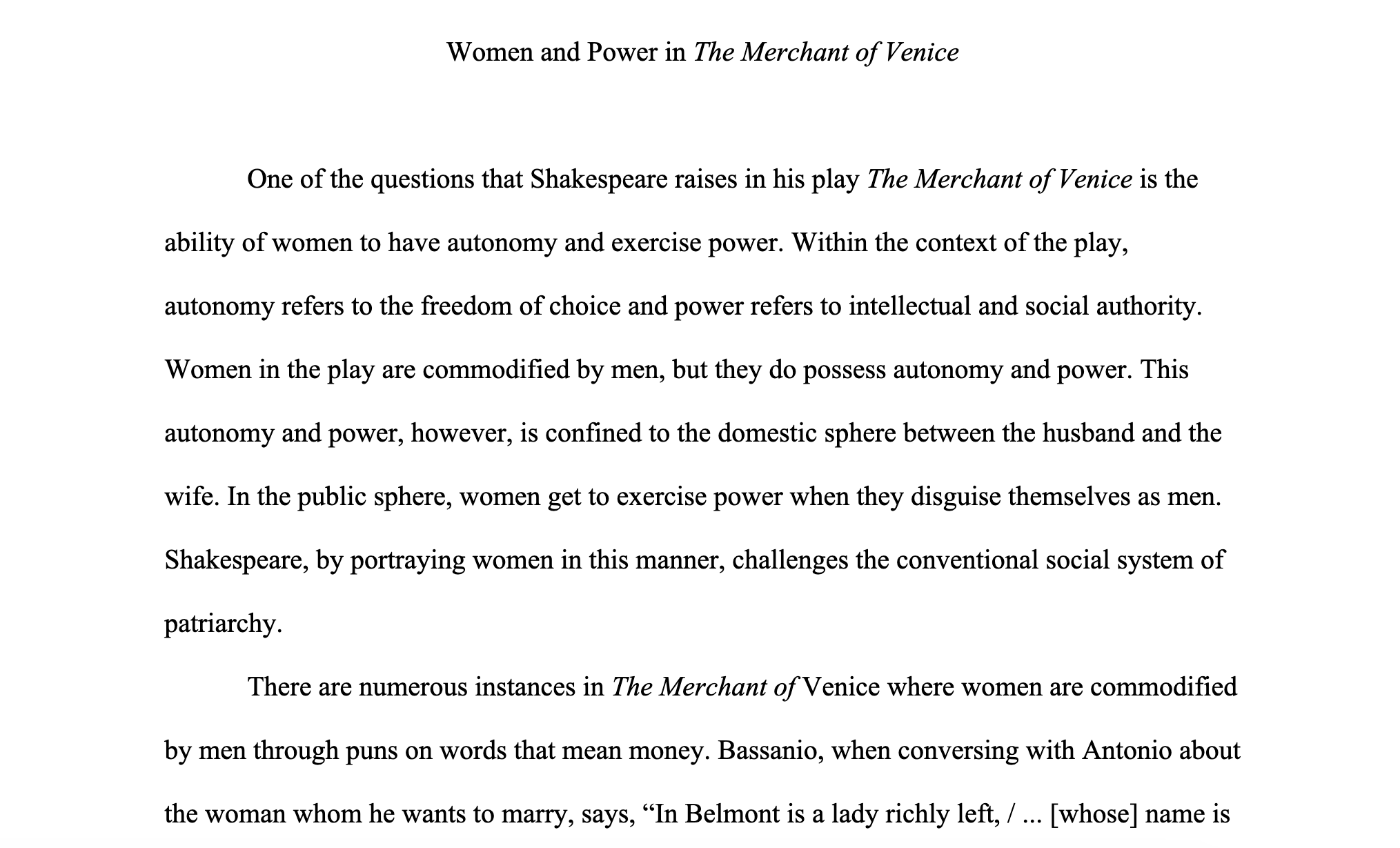
|
Women and Power in The Merchant of VeniceUC San Diego LTEN 112 2022-06 paper / One of the questions that Shakespeare raises in his play The Merchant of Venice is the ability of women to have autonomy and exercise power. This autonomy and power, however, is confined to the domestic sphere between the husband and the wife. In the public sphere, women get to exercise power when they disguise themselves as men. Shakespeare, by portraying women in this manner, challenges the conventional social system of patriarchy. |
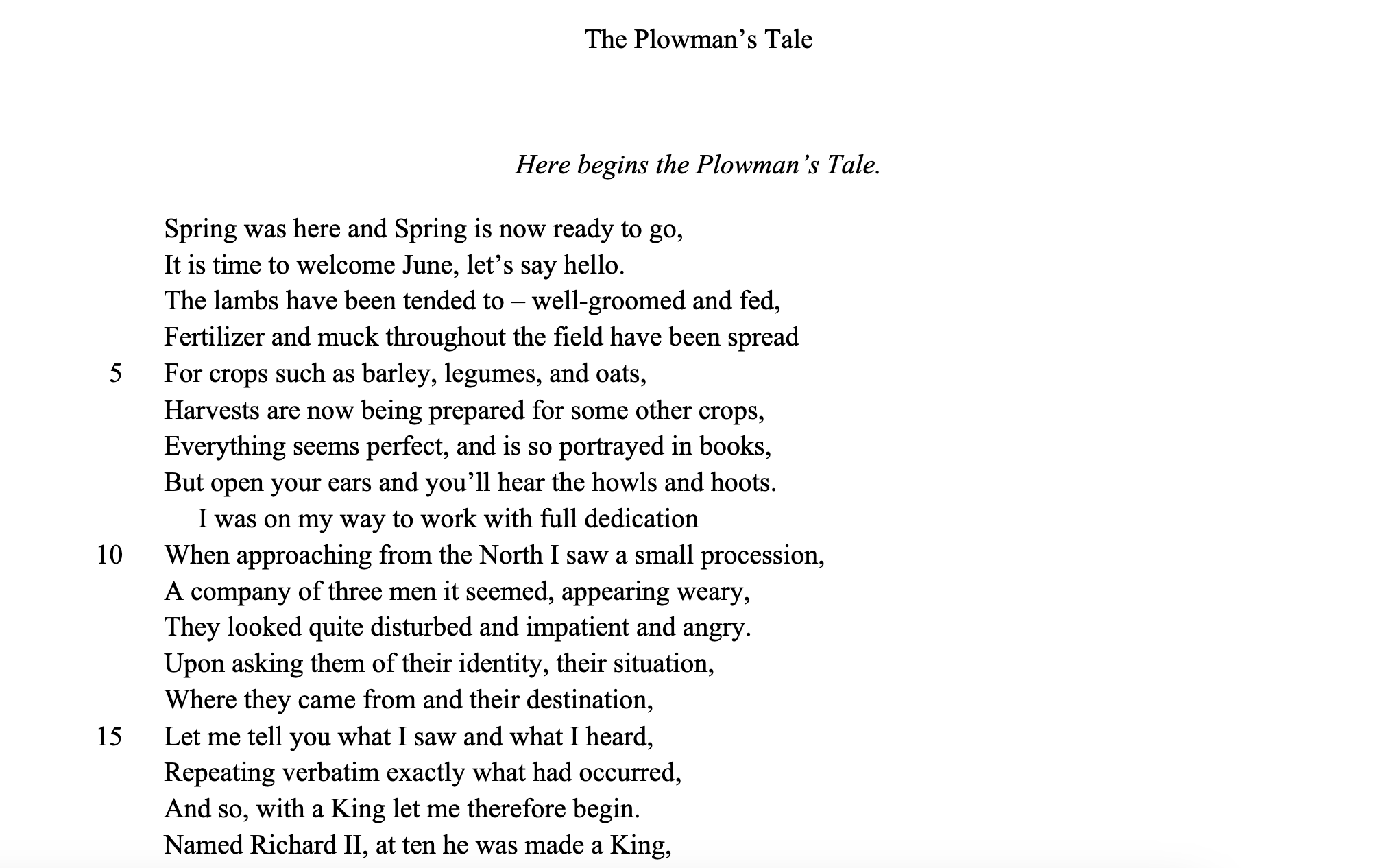
|
The Plowman's Tale in The Canterbury TalesUC San Diego LTEN 107 2021-11 paper / An exercise in creative and imaginative writing, this paper presents a poem that the Plowman in Geoffrey Chaucer’s The Canterbury Tales could have sung if he were given a speaking role. A possible theme, which this paper presents, is the Plowman’s narration of the events of the Peasant’s Revolt of 1381 and an attempt to “quiet” Chaucer. |
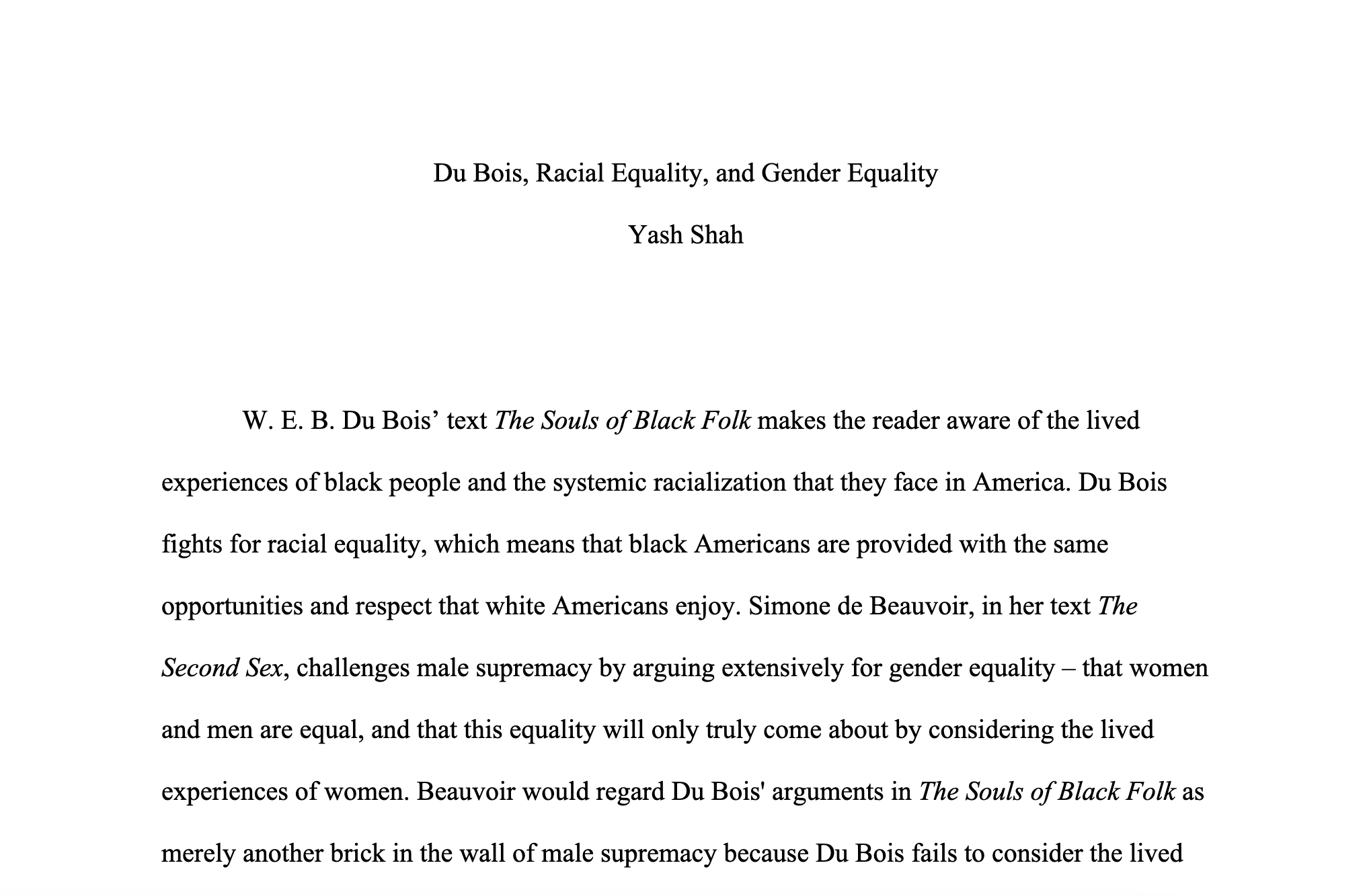
|
Du Bois, Racial Equality, and Gender EqualityUC San Diego HUM 5 2021-05 paper / In this argumentative essay, I view W. E. B. Du Bois’ text The Souls of Black Folk, being an undertaking for racial equality for Black Americans, through the lens of Simone de Beauvoir and her text The Second Sex, which has become, arguably, a classic text for the advocation of gender equality for women. |
Honors and AwardsOver the years... |
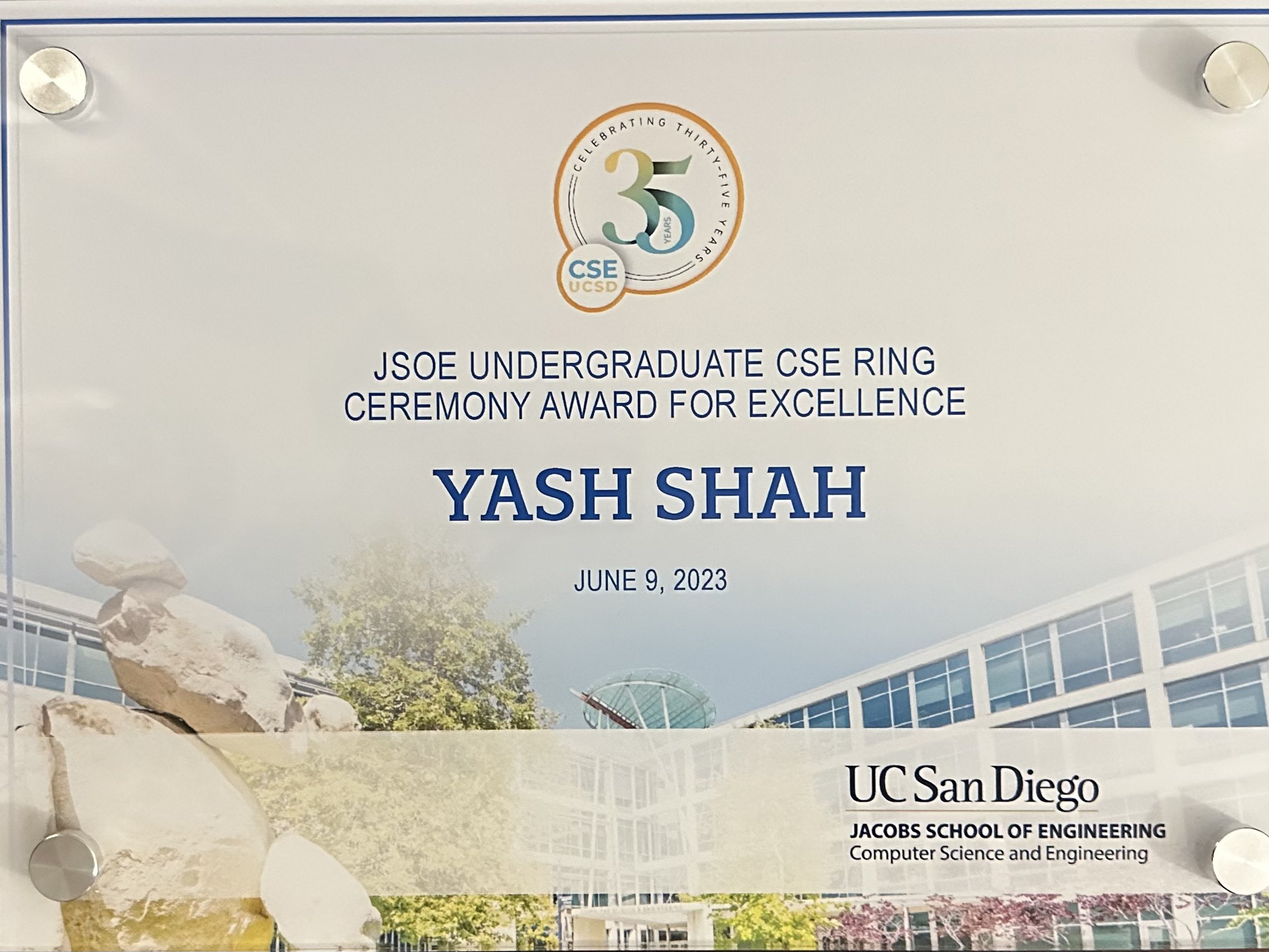
|
Computer Science and Engineering Department Excellence Awardby Jacobs School of Engineering Ring Ceremony, UC San Diego 2023-06 press / for outstanding academic and leadership performance, and exceptional contributions to university life. |
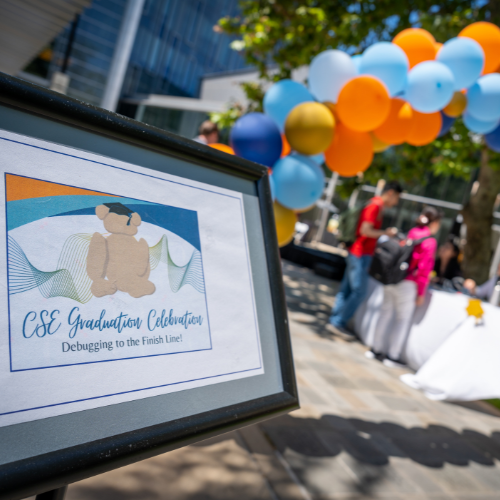
|
CSE Alumni Advisory Board Scholarship Awardby Computer Science and Engineering Department, UC San Diego 2023-06 press / for students who have demonstrated leadership and made contributions to the CSE community. |
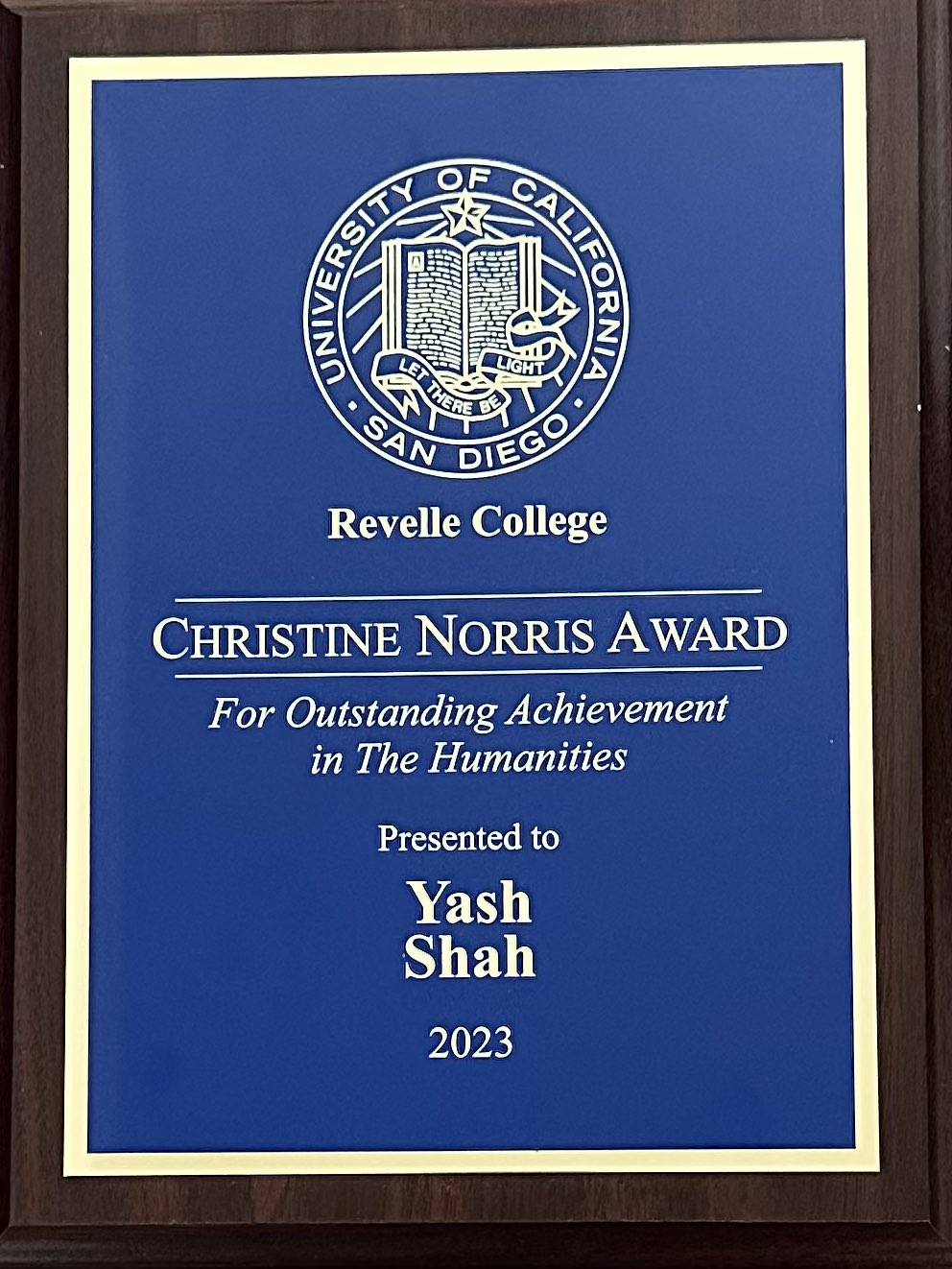
|
Christine Norris Awardby Revelle College, UC San Diego 2023-05 press / for a student who best exemplifies what Humanities appreciated about Chris Norris: an enthusiasm for learning; the ability and desire to explore ideas and issues for their own sake; careful scholarship; and a concern for a clear and forceful articulation of ideas. |
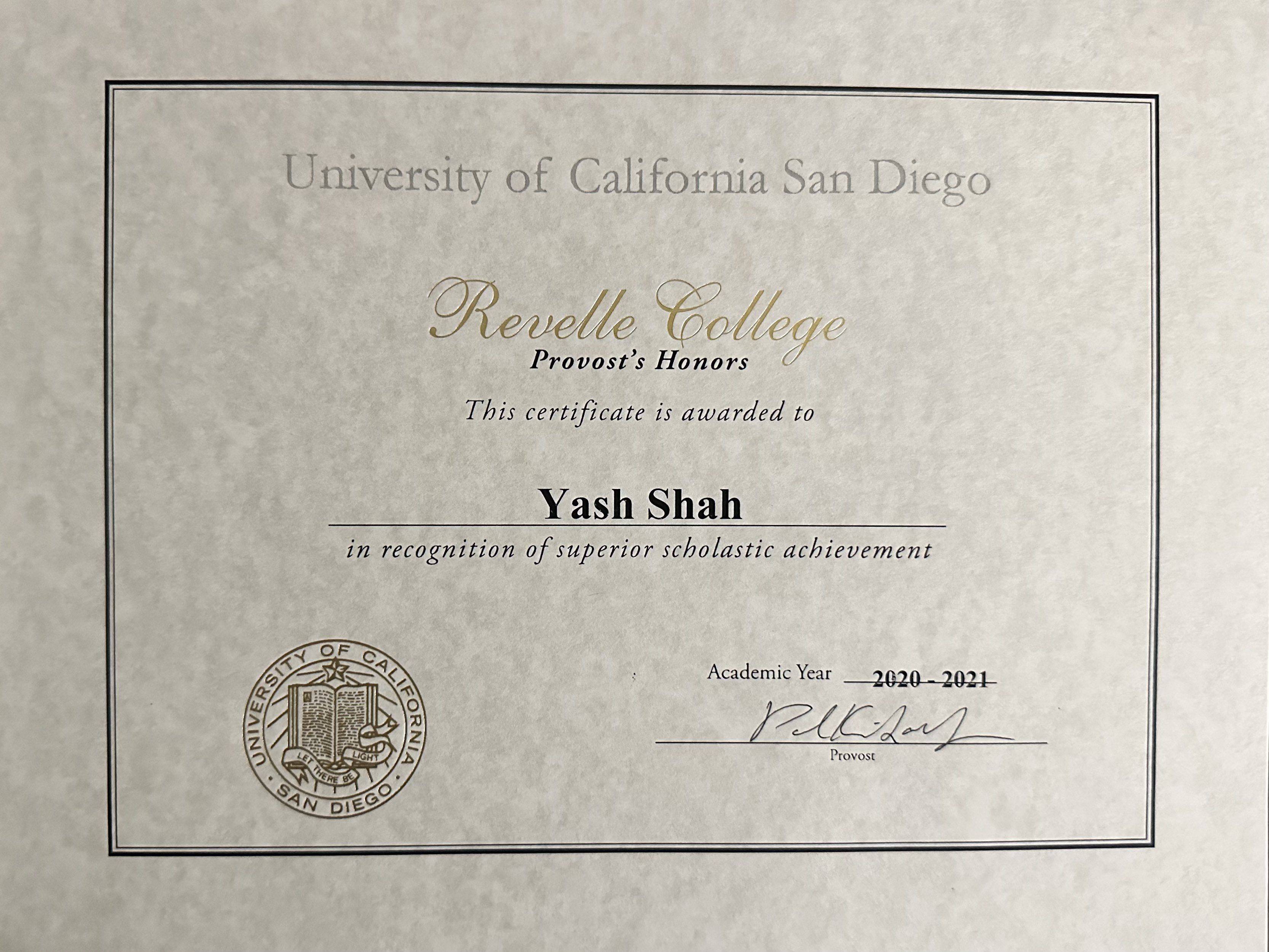
|
Revelle College Provost’s Honors Certificateby Revelle College, UC San Diego 2021-10 for achieving a minimum grade point average of 3.5 for at least 12 graded units for all three quarters in an academic year. |
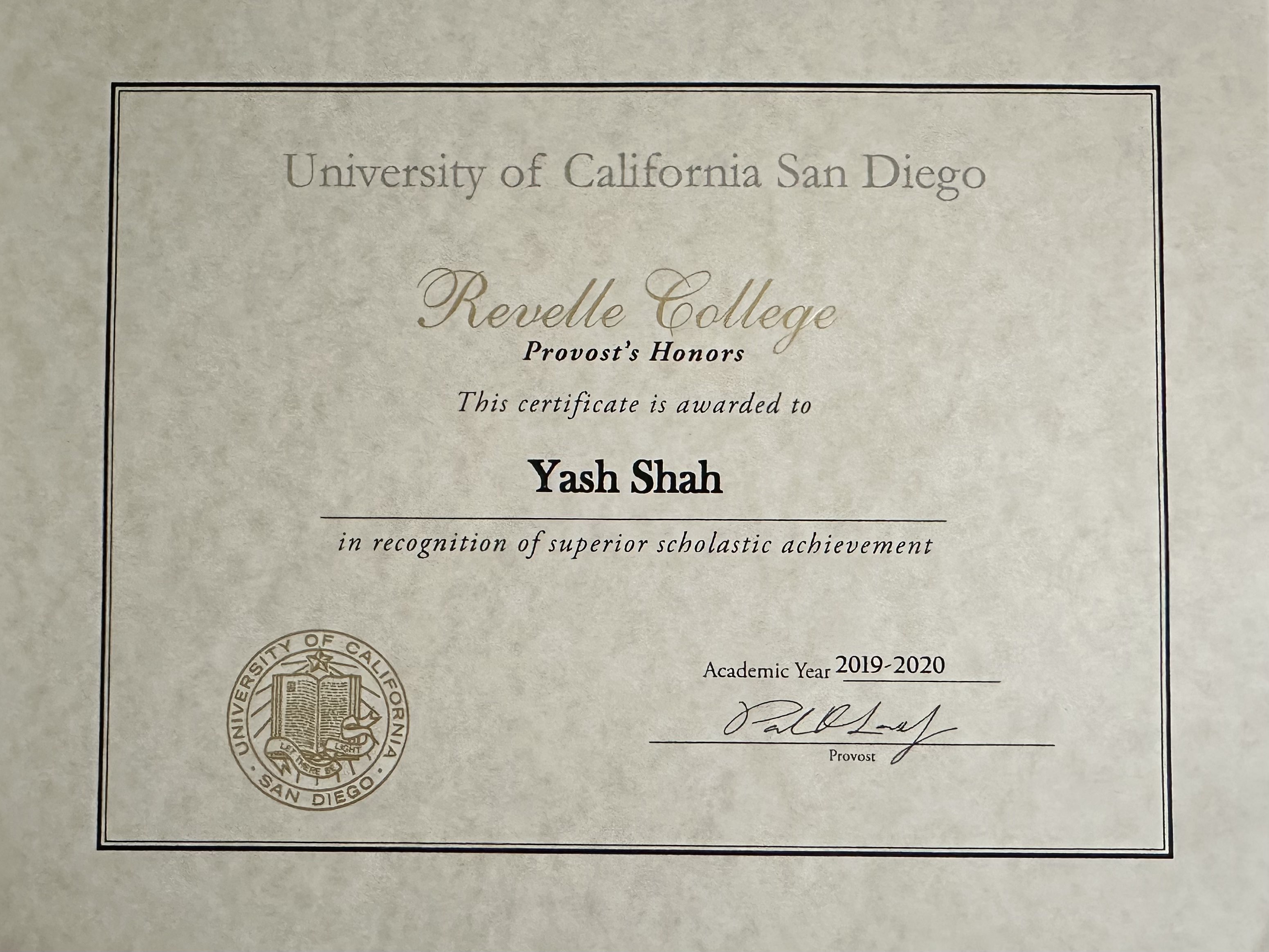
|
Revelle College Provost’s Honors Certificateby Revelle College, UC San Diego 2020-09 for achieving a minimum grade point average of 3.5 for at least 12 graded units for all three quarters in an academic year. |
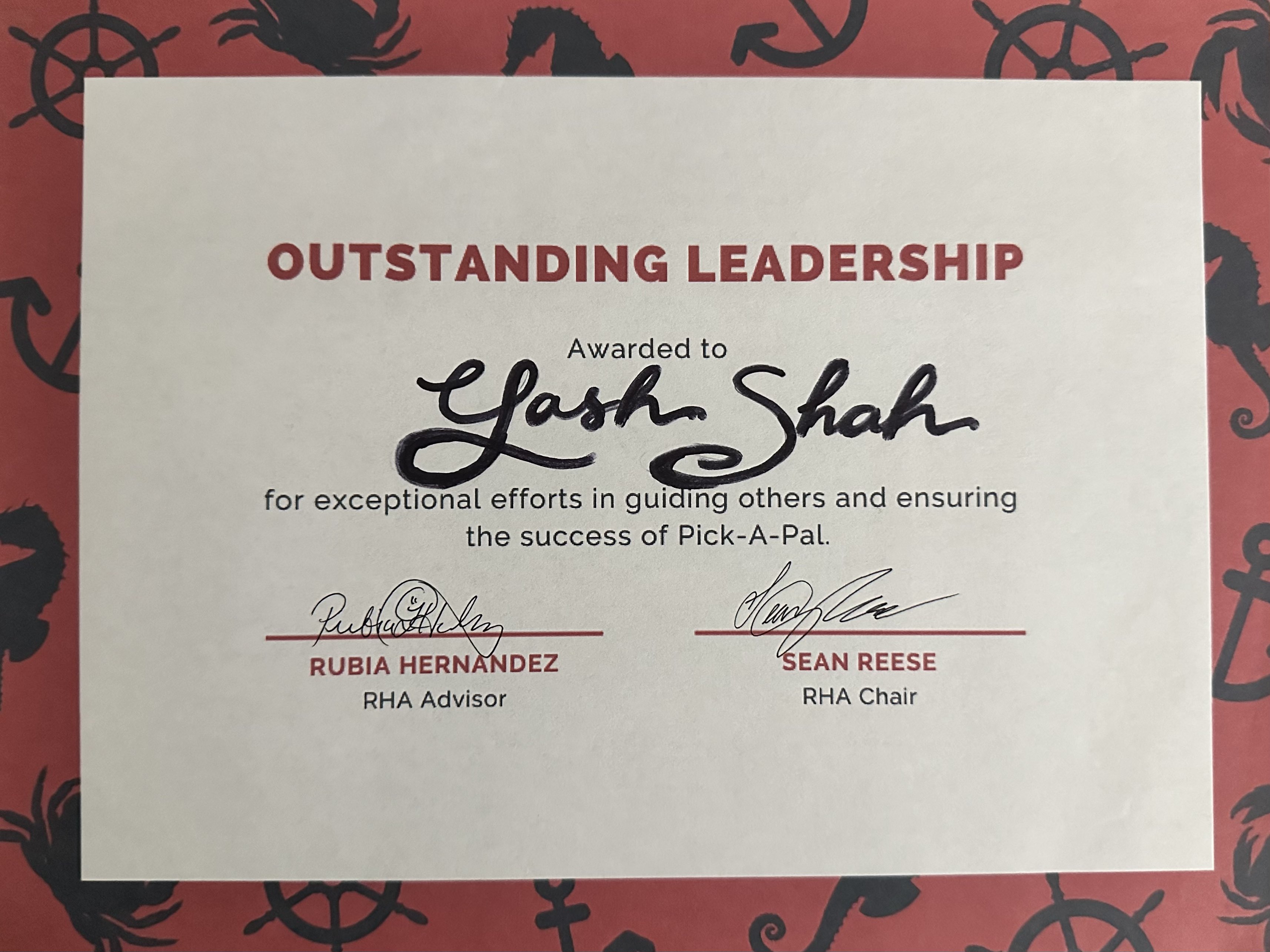
|
Outstanding Leadership Awardby Revelle Hall Association, UC San Diego 2019-12 for exceptional efforts in guiding others and ensuring the success of “Pick-A-Pal” event. |
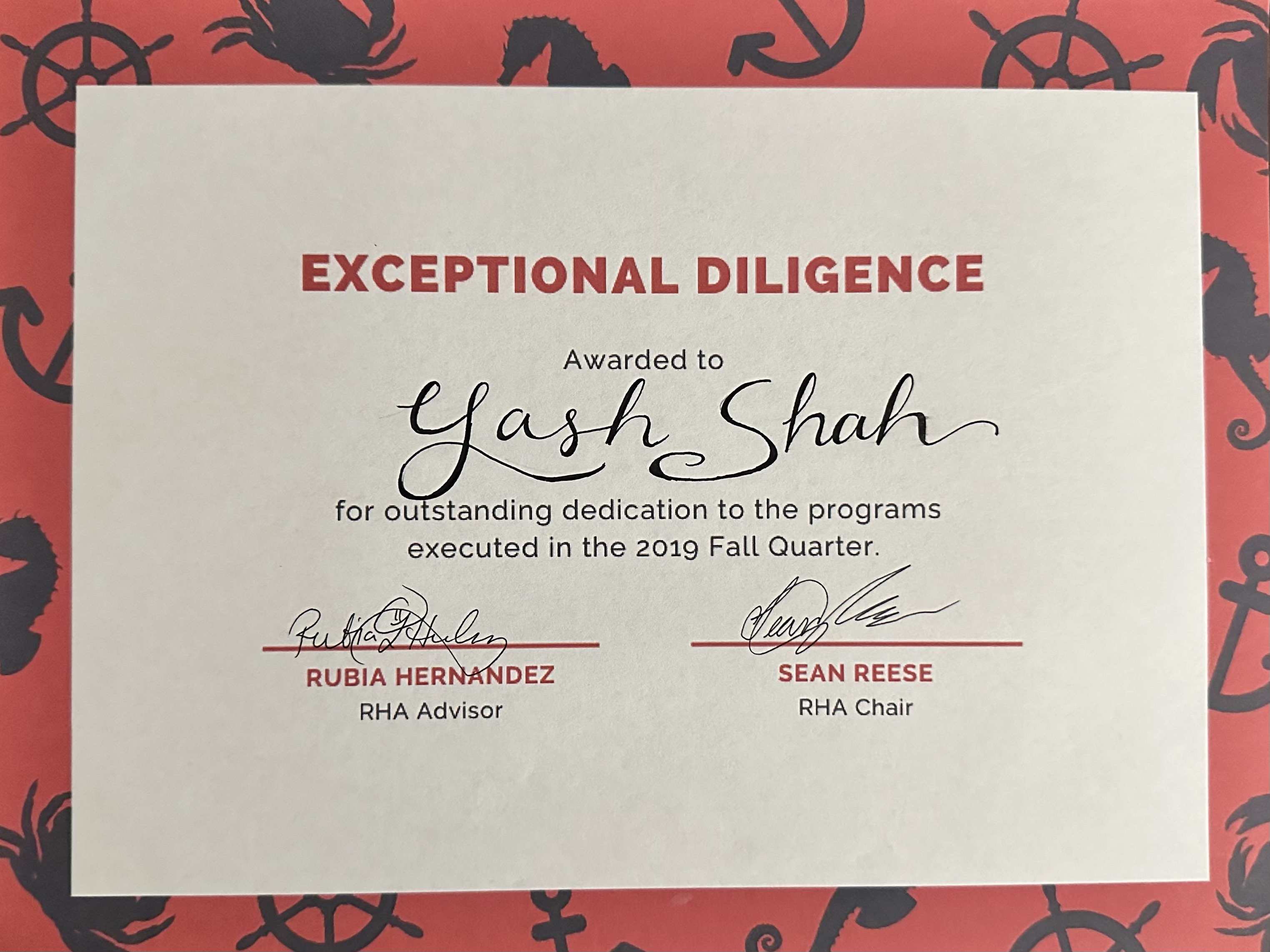
|
Exceptional Diligence Awardby Revelle Hall Association, UC San Diego 2019-12 for outstanding dedication to the programs executed in the 2019 Fall Quarter. |
|
Design and source code from the Jekyll fork by Leonid Keselman of Jon Barron's website |